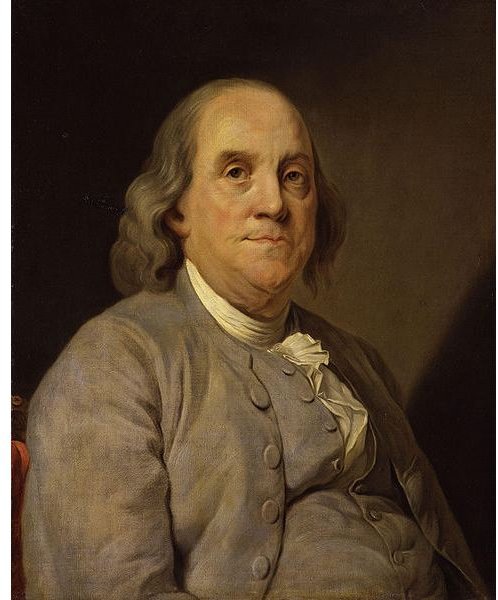The Real Definition of Entrepreneur: Keys to Entrepreneurial Success
Defining the Entrepreneur
Statistics from the Global Entrepreneurship Monitor, a nonprofit research collective that tracks worldwide entrepreneurial trends, indicate the percentage of established entrepreneurial ventures in the United States grew from 5.8 percent in 2001 to 8.1 percent in 2010.
These numbers indicate the percent of population ages 18 to 64 that dually have owned and managed an established business for at least 42 months. Continued growth in the service sector, despite the challenged economy, is largely credited with this progress.
But being an entrepreneur, particularly a successful entrepreneur, is much more than ownership and management. Review a definition of entrepreneur from Merriam-Webster.com and it’s astonishingly similar to another word – leader. I’m not talking about the dictionary definition of leader, but the definition from Warren Bennis in his business classic “On Becoming a Leader.”
Bennis cites attributes of leadership as those of passion, integrity, caring, risk-taking and daring. While words themselves can be hollow descriptors, invoke the names Benjamin Franklin, Henry Ford, P.T. Barnum or Steve Jobs and the definition of entrepreneur springs forth to life in multifaceted dimension. Personally, I cannot imagine any of these men without seeing their faces and remembering their successes, failures, challenges, gumption and commitment to achieving something bigger than themselves and to making their mark on the world.
Who Are You?
If you are self-employed or work from home, I believe it’s important to know where you fall in the spectrum of entrepreneurship. Asking yourself this question “Am I really an entrepreneur?” and reflecting on the response can be a—pardon the pun—defining moment for both you and your business.
Defining the Entrepreneurial Difference
Unlike freelancers or simply people who work from home, what defines entrepreneurs is the capacity to lead in thought, word and action. Is it possible to engage in daring while wearing bunny slippers and working at home? For some, yes. The answer to that question lies in whether the day-to-day activities are motivated by fulfilling the goals and objectives of an outside organization or to building your own goals and dreams.
Entrepreneurial Commitment

Is it possible to be a freelancer and be an entrepreneur? Probably not. Putting it in humanistic terms, freelancers like to date but refrain from marriage. Freelancers think in terms of contracts, projects and deadlines.
Entrepreneurs think big, dream bigger and constantly take chances. There’s an old saying: Marriage means commitment. Of course, so does insanity.
To people without an entrepreneurial bent, being an entrepreneur—with all it’s uncertainties—is lunacy. Some would go so far as to consider it foolish to be so risky with time and resources.
Freelancers and those that work from home for others prefer stability, safety within boundaries and find contentment with helping others fulfill their purpose. The concept of extreme risk is uncomfortable territory.
Defining Entrepreneurial Motivation

Freelancers and entrepreneurs have a different mindset. A freelancer’s work is more management oriented and focused on providing a service to an outside organization to help the organization fulfill a goal. The commitment stops there.
Unlike an entrepreneur, the focus of a freelance business person is on sustaining and growing within very specific limitations. Often the reasoning for working from home or freelancing is built around personal responsibilities and obligations. These life commitments, in other words, are primary motivators.
The definition of entrepreneur, derived from the French word entreprendre (to undertake) refers to the undertaking of an enterprise of purpose, particularly one that requires the ability to engage in risks and daring activities. This mindset of leadership provides framework and motivation for daily activities.
Entrepreneur as Occupation

Whether motivated by profit or non-profit gain, entrepreneurs define themselves through occupation in creating, building, sustaining and growing an organization to fill the need of a community, group of individuals or market segment.
Entrepreneurs are interested in making a difference and establishing a legacy. Most of all, the entrepreneur is motivated by passion. It takes courage to live with this type of passion. The fuel that powers an entrepreneurs choices and actions often leads one to failure, particularly in the early years of a new business. The entrepreneur fears not appearing foolish when making calculated risks.
Defining Entrepreneur Success
It doesn’t matter if you’re self-employed, a freelancer or an entrepreneur; overcoming risk of failure decreases each year in business. Small business statistics indicate 85 percent of businesses tank in the first year, 50 percent by year five and only 35 percent by year ten. To an entrepreneur, failure is necessary for growth but it does not define who they are or limit potential for the future. Hearkening back to Bennis, entrepreneurs define themselves and therefore, shape the world.
Look in the mirror. What do you see? Is that the face of a freelancer or is that face staring back the real definition of entrepreneur?
References
-
Image: Steve Jobs holding an en: MacBook Air by Matthew Yohe under CC-BY-3.0
-
Image: Advertising poster for Barnum & Bailey Greatest Show on Earth from 1899 by trialsanderrors under PD-US.
-
Bennis, Warren. On Becoming a Leader. Basic Books, 2009.
Global BX http://blog.globalbx.com/2008/10/06/small-business-statistics-and-failure-rates/
Global Entrepreneurship Monitor http://www.gemconsortium.org/
Merriam-Webster, Inc. http://www.merriam-webster.com/dictionary/entrepreneur
-
Image: Portrait of Benjamin Franklin by Joseph Siffred Duplessis under PD-US
-
Image: Mr. and Mrs. Henry Ford riding in his first car by undisclosed author under {{PD-US}}
